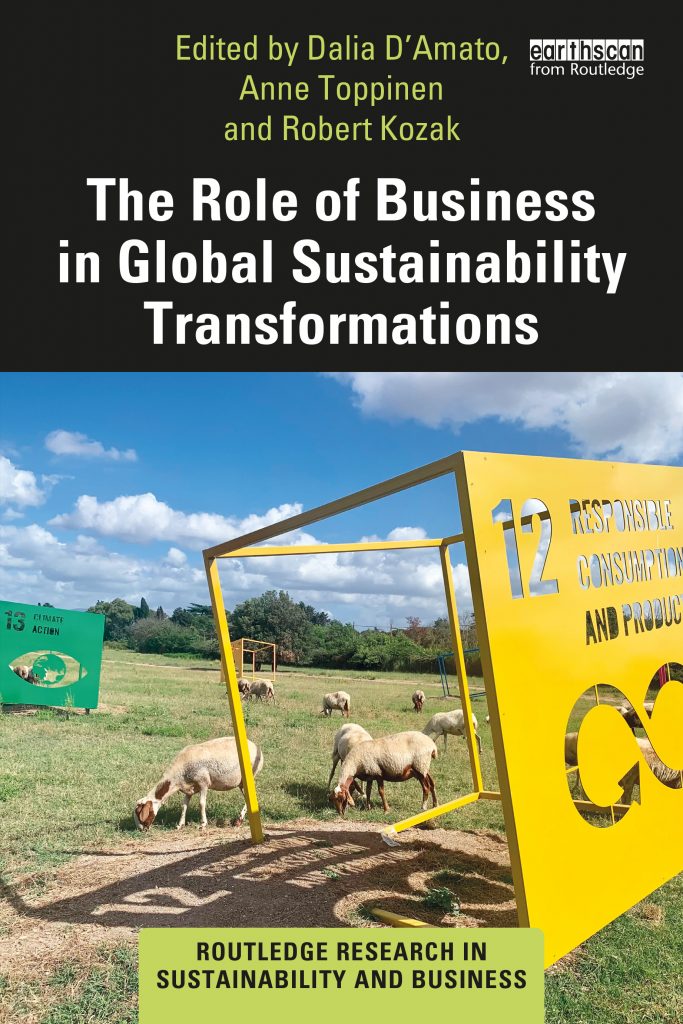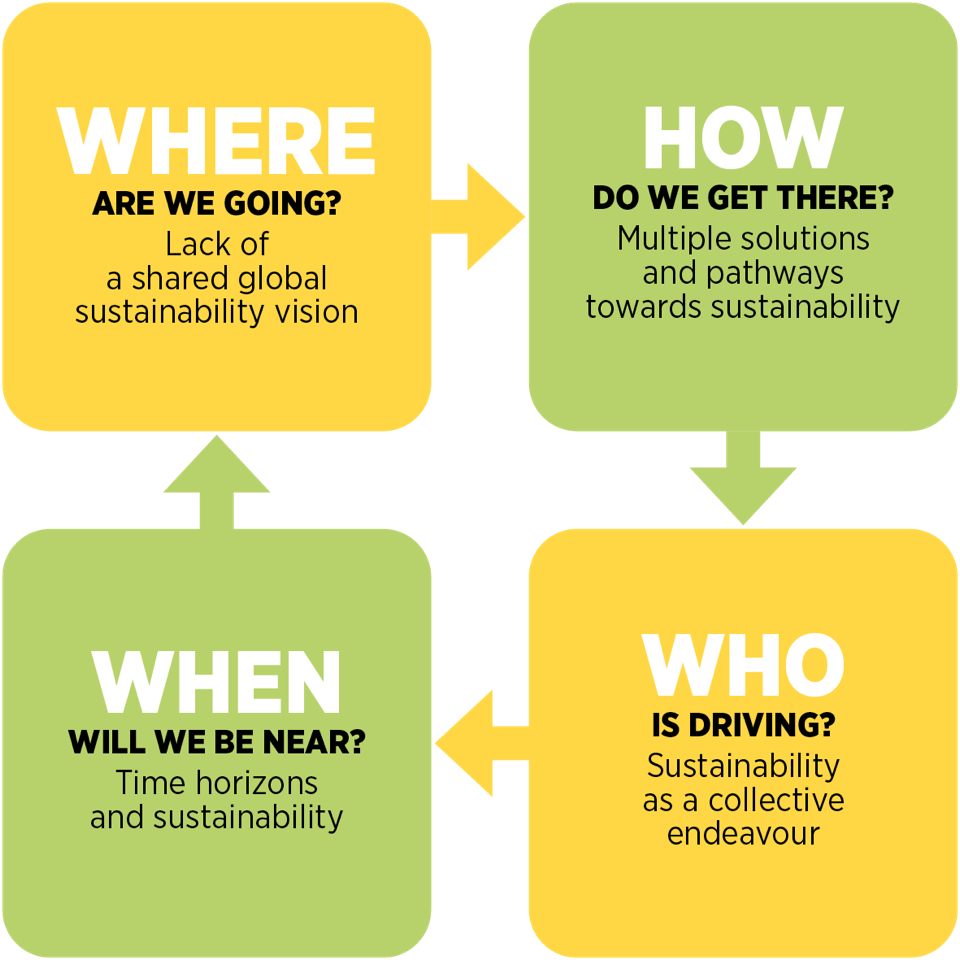D’Amato, D., Toppinen, A., Kozak, R. 2022. The Role of Business in Global Sustainability Transformations. Routledge. doi:10.4324/9781003003588
Drawing on contributions from more than thirty international scholars and experts in the field, this recently launched book, freely available in open access, examines the role of business – as an enabler, as an inhibitor, and, ultimately as a co-actor – in global sustainability transformations expected over the coming decades. Climate change, biodiversity loss, natural resource overuse, and other forms of human-caused environmental damage are globally recognized as interrelated, wicked challenges that manifest as disruptions to our existing socioeconomic systems. In the meantime, though, private sector companies must continue to make vital contributions to the world in the forms of goods, wealth creation, and employment.

In this post-pandemic and geopolitically turbulent era, perspectives, priorities, and even human values, have shifted. Doing business also in this current context means envisioning and developing economic models that can cater to societal needs within the planet’s biophysical boundaries. Organisational resilience is seen an important capability which is dependent on the resilience of broader socio-ecological systems.
The chapters in this book reference diverse topical cases, peer-reviewed literature, and practical examples to delineate a framework for the potential contributions of the private sector to planetary sustainability. The term ‘sustainability transformations’ is used to envision and assess ‘pathways of sustainable environmental and societal change’.
Weaving through the 12 chapters co-authored by international scholars and practitioners, we present four core tensions and sources of inertia towards transformative change. First, there is a need for greater harmony towards a shared vison of global sustainability. Despite the stated importance of Sustainable Development Goals to multiple societal actors, the current mismatch between the agendas and priorities of most business actors and sustainability remains problematic in practice.
Second, sustainability solutions proposed by increasingly legitimised narratives (e.g. the circular bioeconomy) tend to dominate societal and organizational dialogue and practice with respect to innovation and business models. While well-intended, they may have a long-term perverse effect of hampering the emergence and development of alternative ideas, such as, sufficiency-based approaches, to name one example.

Third, the roles and responsibilities of multiple societal actors are interdependent. The possibilities for a company to create positive impact for sustainability may vary according to contextual factors like size and position in value networks. Furthermore, more radical change requires an orchestration of multiple societal institutions, including policymakers and legislators, scientists, knowledge brokers and intermediaries, activists, and civil society.
Fourth, there exists a tension of asynchronous time horizons at policy levels between international (medium-long term planning from 2030-2050) and national agendas (four to six year timeframes); and at business levels, between short-term financial orientation and longer-term perspectives of business viability and resilience.
We conclude the book with some hope. We advocate for the need to align visions, actions, and time horizons between policy, society, and business in addressing sustainability challenges, while acknowledging the need to allow for multiple solutions and pathways. The context in which businesses operate continues to be extremely important. Hence, there is a need to exert strong pressure on business laggards to enable change, and sufficient support for early adopters to thrive in the varying contexts.
We hope that this book will be an important resource for scholars and professionals working in the field of sustainability and sustainable business, and a vital educational text for students interested in this discipline.
About the Editors
Dalia D’Amato is an Adjunct Professor at the Department of Forest Sciences, Faculty of Agriculture and Forestry, University of Helsinki (Finland), and a member of the Helsinki Institute of Sustainability Science (HELSUS). Since Autumn 2022, she has been employed by the Finnish Environment Institute (SYKE).
Anne Toppinen is Professor in forest economics and business and Vice Dean of research affairs and doctoral education at the Department of Forest Sciences, Faculty of Agriculture and Forestry, at University of Helsinki (Finland). During 2018-21, she served as Director of the Helsinki Institute of Sustainability Science (HELSUS).
Robert Kozak is a Professor and Dean of the Faculty of Forestry at the University of British Columbia.
